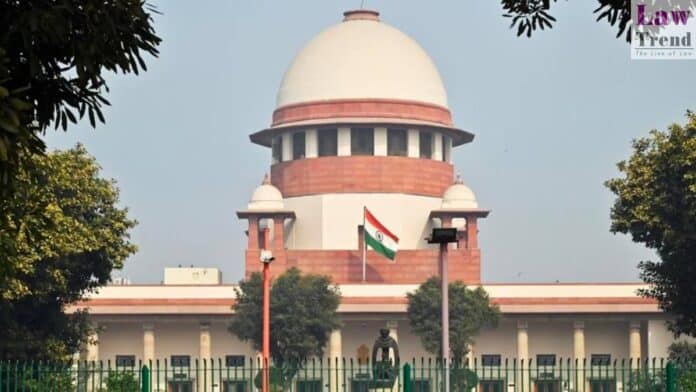The Supreme Court on Tuesday questioned the Centre over the practice of setting up committee after expert committee to review the banning of harmful chemicals and pesticides in India, and quipped it seemed the government keeps appointing panels till it gets a favourable decision.
The top court was hearing PILs including the one filed by NGO ‘Vanashakti’ seeking a ban on harmful pesticides on the ground that they cause severe health problems to farmers, farm workers and others living in the vicinity. The NGO said at least 27 pesticides were to be banned by January 2018.
“Why do you have to make so many committees? Once the Khurana committee recommended ban on 27 (pesticides), why make another? What was the basis of Khurana committee recommending ban on 27? And then why did the Rajendran committee say ban only three. Show us what led the Rajendran committee to take a different view than the Khurana committee,” asked the bench headed by Chief Justice D Y Chandrachud.

“It seems that every time you (the Centre) have an adverse report from one committee, you form a new committee. You keep appointing committees till you get a favourable decision,” observed the bench, which also comprised justices J B Pardiwala and Manoj Misra.
Additional Solicitor General Vikramjit Banerjee, appearing for the Centre, sought time for filing a detailed note. The bench then agreed to hear the matter on August 1.
At the outset, the bench questioned the rationale behind appointing several panels to review the use of pesticides in view of the fact that two panels had already recommended a ban on 27 pesticides.
According to one of the reports submitted in 2015 by the Anupam Varma Committee, it had recommended ban on 13 pesticides out of a total of 66 in use.
Taking note of some objections to the report, the Centre appointed another expert panel headed by S K Malhotra in 2017 to review 27 pesticides. The Malhotra committee, a year later, reiterated the need for banning the 27 pesticides.
Subsequently, another sub-panel was set up by the Pesticide Registration Committee and, in accordance with its latest report, the Ministry of Agriculture and Farmers’ Welfare issued a draft notification in May 2020 proposing to ban three pesticides.
The law officer, during the hearing, said the government follows the process and trusts science.
“We act in terms of science. The Committee banned three and then asked for objections…The draft proposal is merely a draft and has not been finalised and the objections and suggestions are being considered,” the ASG said.
Lawyer Prashant Bhushan, appearing for the NGO, said two committees recommended banning 27 pesticides and yet a new panel has been set up.
The bench took note of the submissions and asked as to what was the basis of divergent views expressed by the panels.
Earlier, the bench had asked the Centre to place before it the reports on the use of harmful chemicals and pesticides in India and questioned it on why only three pesticides have so far been banned in the country.
“The Union government shall place on the record the final report of the Dr SK Khurana Sub-Committee (referred to in paragraph 10 of the status report) and the report dated September 6, 2022 of the committee chaired by Dr TP Rajendran (referred to in paragraph 11 of the status report),” the court had said.
Also Read
“The Union government shall also file a further affidavit, explaining the basis on which action has been taken presently only with respect to three pesticides in the notification dated February 2, 2023 within a period of four weeks from today,” it had said in the order.
The PILs have sought a ban on harmful pesticides, while the government had alleged the top court is being used as a forum with an ulterior motive and said this should not be allowed.
Prior to this, the bench had directed the Centre to file an updated status report in respect of the regulatory measures taken by it for banning hazardous pesticides.
One of the pleas has sought the enforcement of the right to health of the farmers, farm workers as well as consumers by banning 99 harmful pesticides that are used in India but have been banned by other countries.
The petition referred to instances of severe environment and health hazards caused by pesticides, particularly in Punjab, Kerala and Maharashtra.







